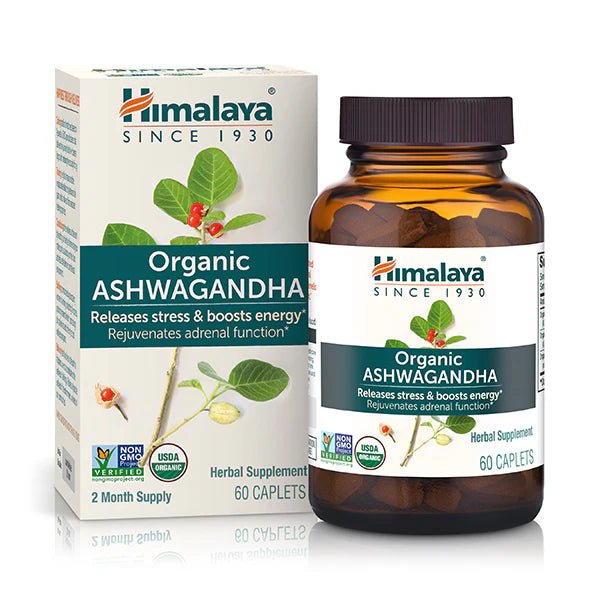Moody? Stressed? Let's Talk Adaptogens
Moody? Stressed? Let's Talk Adaptogens
When it comes to our mood, there are many factors that can affect it. From situations at home, at work, and just about everywhere in between, there are many scenarios in our day-to-day lives that can cause our bodies stress and greatly affect our mood. The good news? You’re not alone! Everyone experiences these kinds of ups and downs and there’s a way to get back to balance when we do—let’s talk about adaptogens.
What Are Adaptogens and How Do They Work?
There are over 70 different types of adaptogens. They are a part of a 4,000-year-old ancient Ayurvedic and traditional Chinese medicine practice that has been used for centuries to help with stress and mood.
All adaptogens have three things in common: they must be safe at normal doses, they should help your ability to cope with stress, and they should help your body return to a state of homeostasis—meaning they should help the body maintain equilibrium or steady levels throughout the day.
Adaptogens also have a synergistic effect, which means they can be used in combination with other herbs to enhance effects and provide your body with the additional support it’s looking for to get back to homeostasis.
How Do Adaptogens Help With Stress and Mood?
Adaptogens have supportive properties that can counteract stress and support your body’s response to stress. A simple way to remember what these plants and herbs do is to keep in mind the word “adapt.” Adaptogens can help our bodies get back to balance by helping them “adapt” to situations that affect our mood or cause us stress.
Adaptogens have been found to support stress relief, increase energy, provide a sense of calm, increase mental focus and clarity, and promote mood balance. The best part about adaptogens is that they are unique to you, they are adapting to you—adapting to your body, your mood, and what you need in the moment.
Different Adaptogenic Herbs That Help Balance Stress & Mood
Some of the most popular adaptogenic herbs include:
Ashwagandha is one of history’s most famous balancing herbs. It’s been used for centuries for its stress and energy properties. Its botanical name is Withania somnifera but it’s also known by several other names, including “Indian ginseng” and “winter cherry.
Ginseng is a popular herb well-known for its health benefits and has been used in traditional Chinese medicine for centuries. It may support your body’s immune response. It has also been known to have antioxidant properties. There are two types of ginseng that are considered adaptogens—American ginseng (Panax quinquefolius) and Asian (Panax ginseng).
Holy Basil is considered a sacred and special herb, often found in temple gardens to promote peaceful thoughts. It is revered for its ability to promote clarity in the mind, has been known to ease frustration, and can also support relaxation. Many use this herb to support the lungs and sinuses as well.
Rhodiola rosea (also known as “golden root” or “arctic root”) is a high-altitude shrub located in the arctic and mountainous parts of Asia, Europe, and North America.
Shatavari is a specific kind of adaptogen for supporting female hormone balance, which can promote comfort and balance during menstrual cycles and menopause. It can also help with irritability and mood swings.
Astragalus is a traditional Chinese medicine staple and has been used in their practice for quite some time. This adaptogen is typically used alongside other herbs to support individuals experiencing things like hay fever or for those looking for extra support for their immune systems.
Gotu Kola is a traditional adaptogen that calms the mind and promotes mental clarity. It supports mental alertness, memory, and overall cognitive wellness.
The Star of the Show
The most common and well-known adaptogen by far is Ashwagandha.
Its history of use stretches back thousands of years and has been traditionally used to address the body’s response to situations related to stress. Ashwagandha’s Sanskrit name, Withania somnifera, translates to ‘the smell and strength of a horse.’ The herb itself can be very pungent (in a good way!) and its translation alludes to its ability to help the body maintain physical strength and adapt to various types of stress. Ashwagandha is one of the herbs that were traditionally considered a Rasayana, or ‘adaptogenic.’ It’s used for supporting many systems of the body including the reproductive system, nervous system, circulatory system, immune system, and endocrine system.
Ashwagandha helps rejuvenate adrenal function and balance normal cortisol levels. This famous adaptogen promotes stress relief, helps with your overall mood, and supports occasional sleeplessness.
Combine & Conquer
In addition to being taken as a pure herb, Ashwagandha’s adaptogenic properties can be combined with other herbs to enhance their effects and support your body’s overall needs.
Some of Himalaya’s Ashwagandha formulas include:
Ashwagandha is combined with Amla, Haritaki, and Licorice to help you achieve your daily tasks without taxing your adrenals or using stimulants like caffeine. It’s been clinically studied to support your adrenals and restore your energy levels.
Everyone can use more joy. Hello Joy® combines Ashwagandha with Amla, Bacopa, and Holy Basil to help cheer you up! There are many different scenarios that are hard to avoid that can bring the blues, but with Hello Joy, you can get that extra support you need in the moment. It’s been clinically studied to support your adrenals and provide mood support and motivation.
Transport yourself to a more relaxing state. Ashwagandha is combined with Turmeric and Saffron to help you unwind. It’s been clinically studied to support your adrenals, provide stress relief, and ease nervousness.
Himalaya's Hello® line was strategically designed to combine time-honored adaptogenic herbs together to promote balance, energy, and relaxation. The products in this line are vegan-friendly, gluten-free, and non-GMO.
Learn more about Himalaya and the benefits of Ashwagandha.




